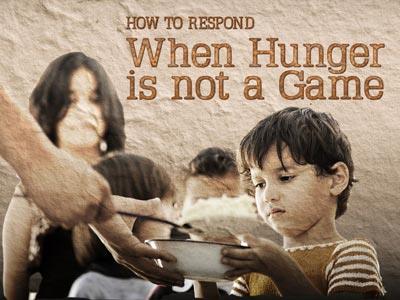-
Showing Partiality Is A Sin
Contributed by Bill Butsko on Sep 3, 2009 (message contributor)
Summary: Favoring one person over another indicates failure to follow Jesus’ example of how to treat people.
Text: “But if you show partiality, you commit sin, and are convicted by the law as transgressors” (James 2:9).
There is a wonderful old story by John Denver about a man invited to a fancy banquet. He arrived wearing simple clothing and was told to get out and go in the kitchen door for a handout. He left, went home, got dressed up, and went back to the banquet.
This time he was admitted and seated in a special place. The guests were rather startled when the food came. The man began to pour the food and drink on his coat, saying eat coat, drink coat.
When he was asked what he was doing, he said, “It was my suit that was invited to the banquet and not me. When I came earlier wearing simple homespun clothing, I was kicked out. When I returned in my suit, I was invited in. So I can only conclude that it was my suit and not me who was invited to the banquet.”
I believe Mr. Denver made the point quite clear. Have you and I ever made a judgment call due to some factor other than the real person? Have we committed the sin of showing partiality or favoritism?
I am guilty of this sin. I have done this in the past and did not realize I was committing a sinful act. I have to be truthful with you because God already knows. I cannot hide anything from Him and neither can you.
I propose several questions that we all need to contemplate or consider. Maybe you have thought about these and maybe not. Maybe these apply to you or perhaps they don’t. I believe we need to think about the following:
1. What are we looking at when we look at people?
2. What do we look for in people we want as friends?
3. How did Jesus look at people?
4. Are we lawbreakers?
Let’s see what kind of answers we can come up with concerning each of these questions.
1. What are we looking at when we look at people?
When we look at people, are we looking at their physical appearance? We should not be looking at a person’s ethnic or racial appearance. It should not make any difference to us if the person is Caucasian, Afro-American, Indian, Oriental, Spanish, or of any other ethnic background.
In addition, we should not be affected by the way they wear their hair, how many earrings they have in their ears, the number and kinds of tattoos displayed, the way they walk or move, whether they are underweight or overweight, or any physical disability they may have.
There is a tendency for us to evaluate people by the clothing they are wearing. People who are wearing old or well-worn clothing are often compared to those who are wearing nice new clothing. When it comes to talking to or helping people, the less fortunate are overlooked.
I was attending an evening service at a certain church one day when the pastor gave the altar call at the end of the service a strange event took place. As I watched the pastor I noticed that he stopped after the call, his mouth dropped open and he became very pale.
As I looked toward the back of the church, my eyes fell upon an individual making his way down the isle. His clothes were dirty, His face and hands were unclean and he walk was unsteady. He had answered the call, but it appeared that he was unwelcome. The ushers quickly escorted him out of the church. I thought to myself, is this what Jesus would do?
At times people are accepted by the fancy jewelry they are wearing. Should this be a means for us to judge the worth of this person? There is nothing wrong with these things as long as they are not between that person and God. I don’t believe this has anything to do with what is in a person’s heart. IT does not mean this person is better in any way than the person who has none.
There are numerous ways we look at people. We tend to look at the neighborhood in which a person lives. Someone living in a so-called upscale gated neighborhood is often rated higher on a scale of 1-10 compared to the person living in the average neighborhood. Many times, less fortunate people are looked down on because they are considered living on the wrong side of the tracks.
People who have other worldly possessions such as expensive automobiles, big boats, recreational toys, or other things are looked up to and even praised while the person who has the very basic items necessary for survival is rarely considered important. Perhaps this lowly person is never invited to functions or community events.

 Sermon Central
Sermon Central



